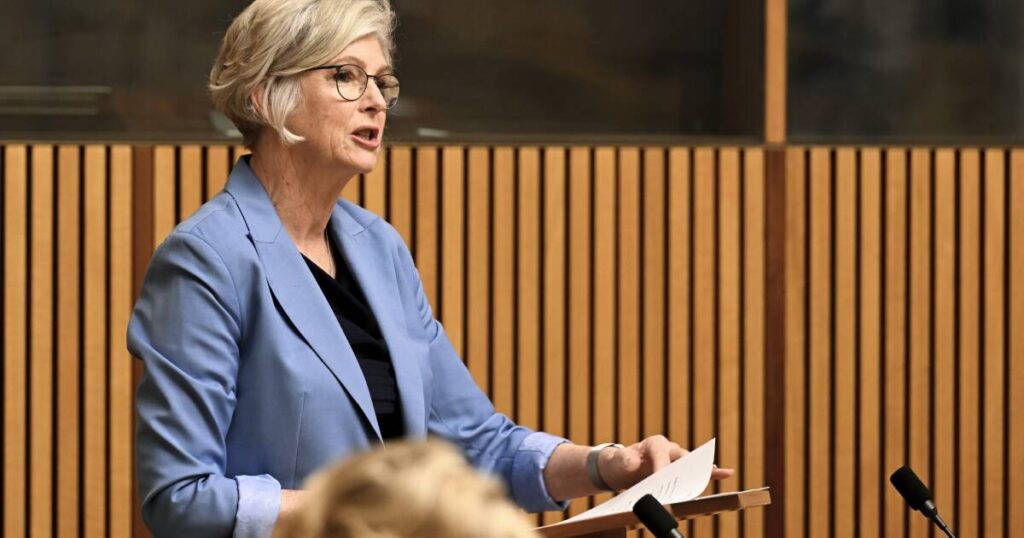
A patient at Albury Wodonga Health faced a life-threatening situation due to a four-day delay in receiving necessary surgery, according to Federal Parliament discussions on October 27, 2023. The delay resulted in severe complications, including gangrene and sepsis, which ultimately led to the patient being placed in intensive care.
Indi MP Helen Haines brought this case to light while advocating for a specialized fund aimed at improving hospital facilities in regional areas. She shared the account of a concerned daughter, Elise, whose father was hospitalized after the surgery delay. “The family were informed that the treatment holdup was due to a shortage of operating theatres, with only seven available between the Albury and Wodonga hospitals,” Dr Haines said. She described this situation as “absolutely appalling,” emphasizing that the community requires an additional 13 operating theatres to adequately meet healthcare demands.
Dr Haines proposed the establishment of a $2 billion Building Regional and Rural Hospitals Fund. This initiative aims to provide competitive, needs-based investment for new facilities and equipment in regional, rural, and remote areas classified as MM2 and higher. “Health services in these regions should be able to apply for funding to address their community needs now and in the future,” she added. The proposal received support from fellow independent MP Andrew Wilkie, who highlighted the disparities in healthcare funding between rural and urban areas.
“It’s unacceptable that, in a country as affluent as Australia, rural residents receive $1,090 less in healthcare funding per person annually compared to those in urban centers,” Mr Wilkie stated. He noted that this funding gap totals over $8 billion per year, contributing to longer wait times and inadequate specialist services in rural communities.
When asked to comment on Dr Haines’s proposal, Sussan Ley, the Liberal Party Opposition leader and MP for Farrer, refrained from endorsing the fund. She stated, “I support greater investment certainty for regional hospitals to ensure every Australian can access high-quality care, regardless of their location.” Ley pointed out ongoing disputes between the Albanese government and the New South Wales and Victoria governments over hospital funding increases, mentioning that requests for additional financial support for Albury have been consistently denied.
In a separate statement, Trish Cook, a Western Australian Labor MP representing the largely rural seat of Bullwinkel, acknowledged the importance of the issue raised by Dr Haines. However, she did not explicitly support the proposed fund. Instead, she emphasized the Labor government’s commitment to healthcare, stating, “We are delivering a record $1.8 billion for public hospitals along with workforce incentives. We are also finalizing a new five-year National Health Reform Agreement to ensure long-term funding stability for our hospitals.”
Dr Haines’s motion is now poised for consideration by the federal government, as she seeks to garner support from key officials, including the Treasurer and the Health Minister. The discussion surrounding regional healthcare funding continues to gain traction, particularly in light of the challenges faced by communities in accessing timely and adequate medical services.






